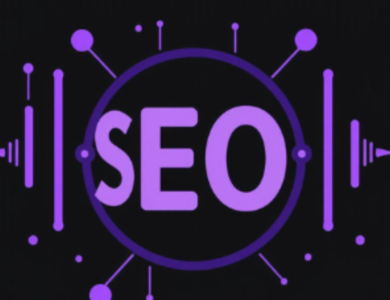The Difference Between On-Page SEO and Off-Page SEO

Introduction
If you want your website to rank higher on Google, you need a strong SEO (Search Engine Optimization) strategy. But SEO isn’t just one thing—it’s divided into On-Page SEO and Off-Page SEO.
✅ On-Page SEO refers to everything you can control on your website, such as content, keywords, page speed, and internal links.
✅ Off-Page SEO refers to external factors like backlinks, social media presence, and brand authority.
Both are essential for a successful SEO strategy. Let’s explore how they work and why you need both!
What is On-Page SEO?
On-Page SEO involves optimizing your website’s content, structure, and HTML elements to help search engines and users understand it better.
Why On-Page SEO Matters:
- Helps search engines index and rank your site properly.
- Improves user experience (UX) and keeps visitors engaged.
- Directly influences how high your pages rank on Google.
Key Elements of On-Page SEO
1. Keyword Optimization
- Use relevant keywords naturally in your content.
- Place keywords in titles, headings, and URLs.
- Avoid keyword stuffing (overloading text with keywords).
2. High-Quality Content
- Create original, informative, and engaging content.
- Use long-form articles (1,500+ words rank better).
- Keep content updated and relevant.
3. Title Tags & Meta Descriptions
- Title tags should be under 60 characters and include keywords.
- Meta descriptions should be under 160 characters and encourage clicks.
4. URL Structure
- Keep URLs short, readable, and keyword-rich (e.g., yourwebsite.com/best-seo-tips).
5. Internal Linking
- Link to other relevant pages on your site to improve navigation and boost rankings.
6. Image Optimization
- Use compressed images for faster loading.
- Add alt text with keywords for better search visibility.
7. Mobile-Friendliness
- Make sure your website is responsive and works well on all devices.
8. Page Speed Optimization
- Use tools like Google PageSpeed Insights to ensure fast loading times.
What is Off-Page SEO?
While On-Page SEO focuses on your website, Off-Page SEO focuses on increasing authority and reputation through external factors.
Why Off-Page SEO Matters:
- Helps search engines trust your website.
- Boosts brand recognition and credibility.
- Improves rankings by increasing backlinks and brand mentions.
Key Elements of Off-Page SEO
1. Backlink Building
- Get high-quality links from reputable websites.
- Avoid spammy backlinks, as Google may penalize them.
2. Social Media Signals
- Engage on Facebook, Twitter, LinkedIn, and Instagram.
- More engagement = more trust and visibility.
3. Guest Blogging
- Write articles for high-authority sites to get backlinks.
4. Brand Mentions
- Even if there’s no link, getting mentioned by big brands helps SEO.
5. Influencer Marketing
- Partner with industry influencers to promote your website.
6. Forum & Q&A Participation
- Answer questions on Quora, Reddit, and industry forums.
7. Local SEO & Business Listings
- Optimize Google My Business and get listed in local directories.
On-Page SEO vs. Off-Page SEO: A Quick Comparison
| Feature | On-Page SEO | Off-Page SEO |
|---|---|---|
| Focus Area | Optimizing website content & structure | Improving authority & credibility |
| Main Activities | Keywords, content, speed optimization | Backlinks, guest blogging, social media |
| Control Level | Full control (website owner manages) | Limited control (depends on external sites) |
| Goal | Improve user experience & rankings | Increase trust & website authority |
Conclusion
To rank higher on search engines, you must use both On-Page and Off-Page SEO.
📌 On-Page SEO makes your website user-friendly and search engine-friendly.
📌 Off-Page SEO builds your website’s authority and reputation.
By combining both strategies, you’ll achieve better rankings, more traffic, and greater online success!



